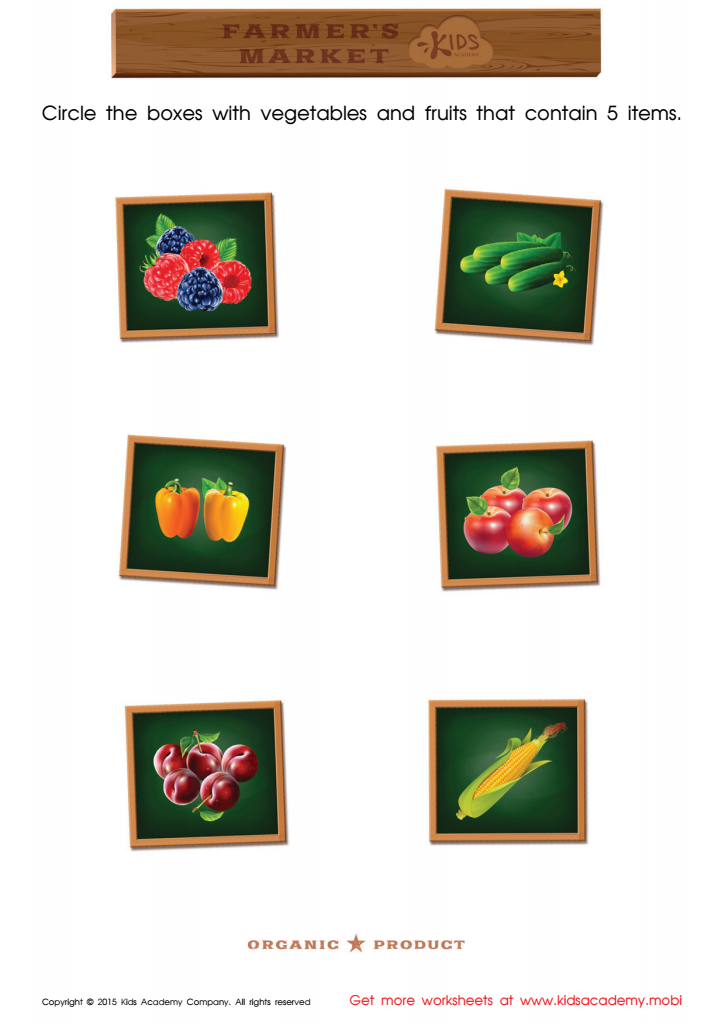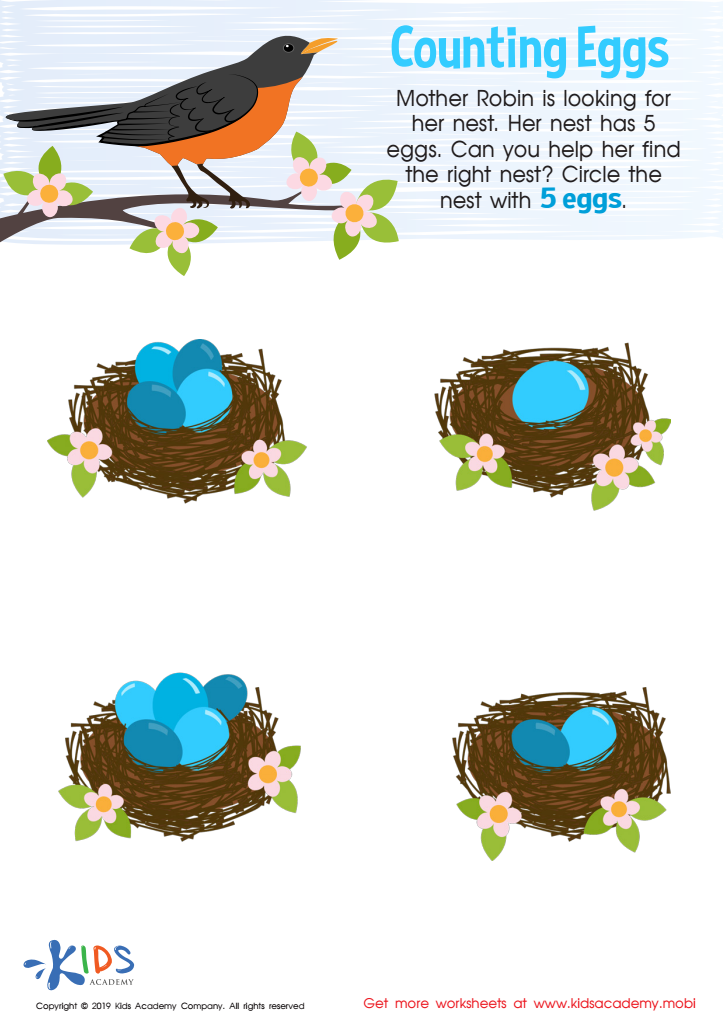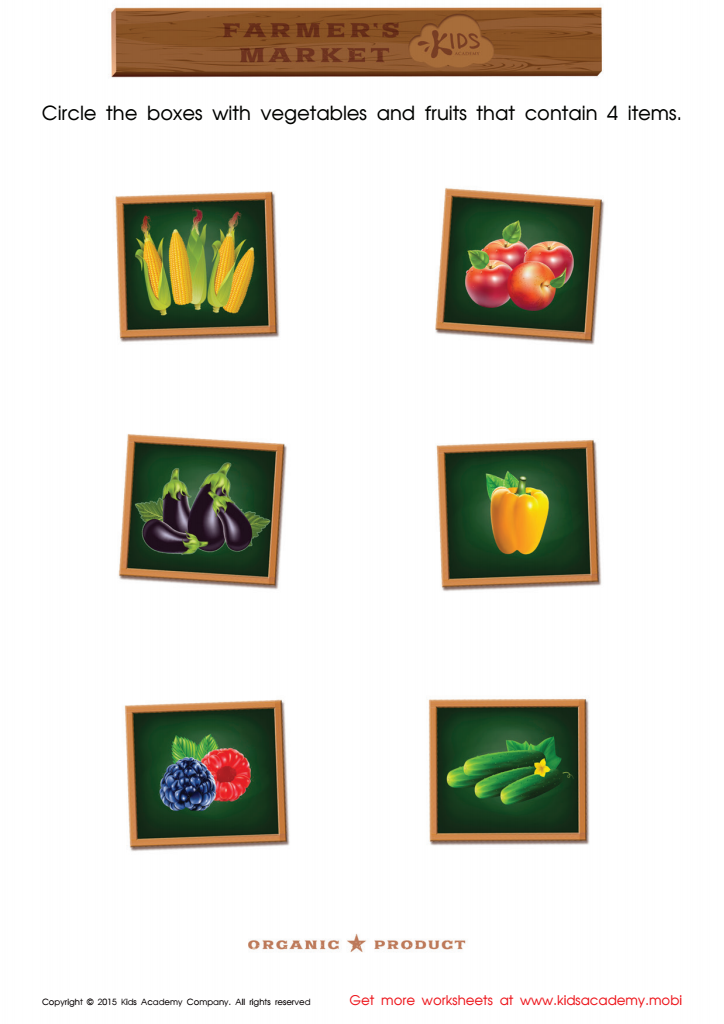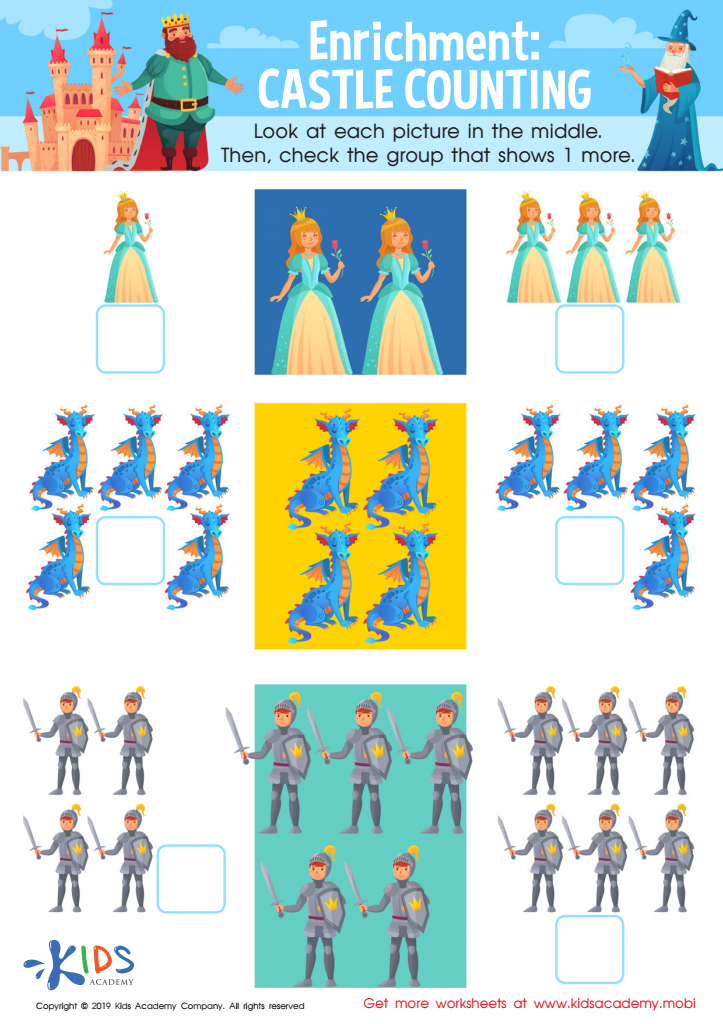Fine motor skills (drawing lines) Numbers 0–10 Worksheets for Ages 5-7
4 filtered results
-
From - To
Enhance your child's fine motor skills with our engaging "Numbers 0–10 Worksheets" designed for ages 5-7. These printable activities guide young learners in drawing lines to form numbers, fostering precision and control. Ideal for early math practice, each worksheet supports number recognition and formation while improving hand-eye coordination. Perfect for preschool and early elementary students, these fun and educational worksheets make mastering basic numbers enjoyable. With clear, easy-to-follow instructions, children will gain confidence in their abilities and lay a solid foundation for future math success. Explore our collection and watch your child's skills flourish!


Count and Match Vegetables 1 – 7 Math Worksheet


Counting Eggs Worksheet


Count and Match Vegetables 2 – 8 Math Worksheet


Enrichment: Castle Counting Worksheet
Fine motor skills and early number recognition are critical developmental milestones for children aged 5-7, as they directly impact both academic success and daily life activities. Firstly, fine motor skills, such as drawing lines and basic writing abilities, play a crucial role in a child's school readiness. Mastery of these skills assists children in holding pencils correctly, writing legibly, and performing other classroom tasks like cutting paper and tying shoelaces, fostering independence and self-confidence.
Recognizing numbers from 0 to 10 is also foundational for early math education. This skill links to a multitude of essential cognitive processes, including counting, basic arithmetic, and problem-solving. Proficient number recognition enhances a child’s ability to understand mathematical concepts and engage in age-appropriate mathematical activities, laying the groundwork for future academic achievements in mathematics and related fields.
Moreover, these early skills promote neural development and cognitive growth. Activities involving fine motor skills stimulate the brain’s coordination areas, improving attention, memory, and spatial awareness. Early interaction with numbers fosters logical thinking and the ability to recognize patterns. Teachers and parents can support these developmental areas through engaging, hands-on activities that encourage practice and play, ensuring children develop the competencies necessary for lifelong learning and everyday tasks.

 Assign to My Students
Assign to My Students
















